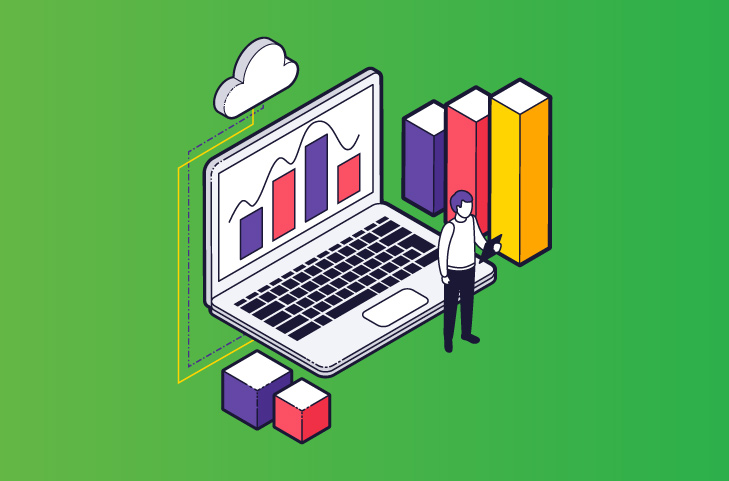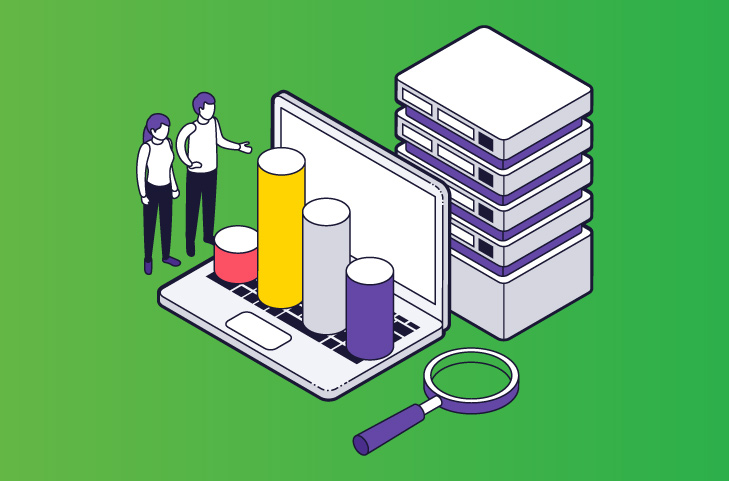B2B data providers can take a lot off your plate. They provide purchase-ready datasets you can pump into your data-driven campaigns immediately.
However, the success of your data-driven campaigns depends greatly on your data quality. This means that before you approach a data provider company, you should assess if their services meet your needs.
Here is a complete guide on B2B data providers.
What is a B2B Data Provider? Do I Need One?
B2B data is a collection of customer-centric data and associated information that can energize your sales and marketing campaigns. With this data, you can create customer experiences that deliver. Today, most key B2B players consider data a vital asset for sales and marketing, and more than 92% of them use data analytics.
But, collecting this data from scratch and maintaining its quality is challenging.
Here is where B2B marketing data providers can change the game. And it can do so in more ways than you think.
B2B data companies collect and sell third-party B2B data. While the term ‘B2B data provider’ is reductive, these companies provide services like data hygiene, data appending, CRM management, sales intelligence, and pipeline prediction.
However, data providers offer different services at varying price points, catering to different industries, and offer several types of B2B data.
What B2B Data Can I Get From A Data Provider Company?
- Intent data: It highlights customer activity to provide insight into buying signals. So, if intent data shows a category of accounts eager to read case studies, they are likely towards the bottom of the funnel.
- Fit data: Fit data helps you find leads that best fit your ICP (ideal customer profile.) It consists of demographics, technographics, and firmographics.
- Opportunity data: Opportunity data allows you to identify opportunities within a customer database, i.e., look for favorable conditions with high chances of conversions.
The Different Types Of B2B Data Providers

Here is a table comparing the different types of data provider companies.
| Category |
How They Work |
Pros |
Cons |
| Owned B2B Data List Providers | They procure data through crawlers, email opt-ins, and other proprietary sources. They are vendors who sell their first-party data. | Accuracy: They are close to the primary data source. | Data decay: Vendors who sell their data may not have the means to keep it fresh and updated. |
| Familiarity: They have a good grasp of the type of data they are collecting | |||
| Good service: In case of any data-related issues, owned data providers can resolve them quickly | |||
| Brokers and B2B Data Resellers | Brokers and resellers gather data from multiple sources and then d resell it to other companies. This is the most common category of B2B data providers. | Value-added services: They also provide add-on services like data appending, cleansing, etc. | Lack of familiarity: Since brokers are far removed from the actual data source, they may not be familiar with the context or the type of data they offer. |
| Niche markets: Brokers often sell data about niche markets like technology, healthcare, and fintech. | |||
| Costs: Their data offerings and add-on services may be pricey. | |||
| Data Aggregators | Data aggregators compile a massive volume of information from several sources, which may be paid or organic. They are not the same as data resellers because they store and maintain their data in a consolidated format. | Volume: Data aggregators collect more volume of data than resellers | Possible redundancy: Since data aggregators collect a lot of data from various sources, duplicate records may creep into their data. |
4 Steps For Choosing a Data Provider

#1 Do your research
Consider factors like:
- Data source
- Reputation
- Industry coverage
- Pricing plans
- Add-on features
#2 Communicate your business objectives
While meeting the company’s sales rep, ask them how their services can support your goals.
You can ask the following questions:
- What are the types of data you provide?
- What quality checks do you use to combat data decay, redundancy, and inaccuracy?
- Is your data compliant with privacy laws?
- How can I access your customer support team?
#3 Understand their features and benefits
Some data provider companies offer features and add-ons at a discounted price or for free with certain pricing plans. Check if any of those features (along with the main product) can further your campaign.
#4 Request a free sample
Steer clear of data-providing companies that refuse free samples. Once you get your free sample, examine it for:
- Data volume
- Data fields
- It is good to run a test with the sample before investing
In Conclusion

By understanding how B2B data providers operate, you can make an informed decision and invest your resources in the best way possible. So perform your due diligence, test the waters, and pick only the best fit for your B2B business.


